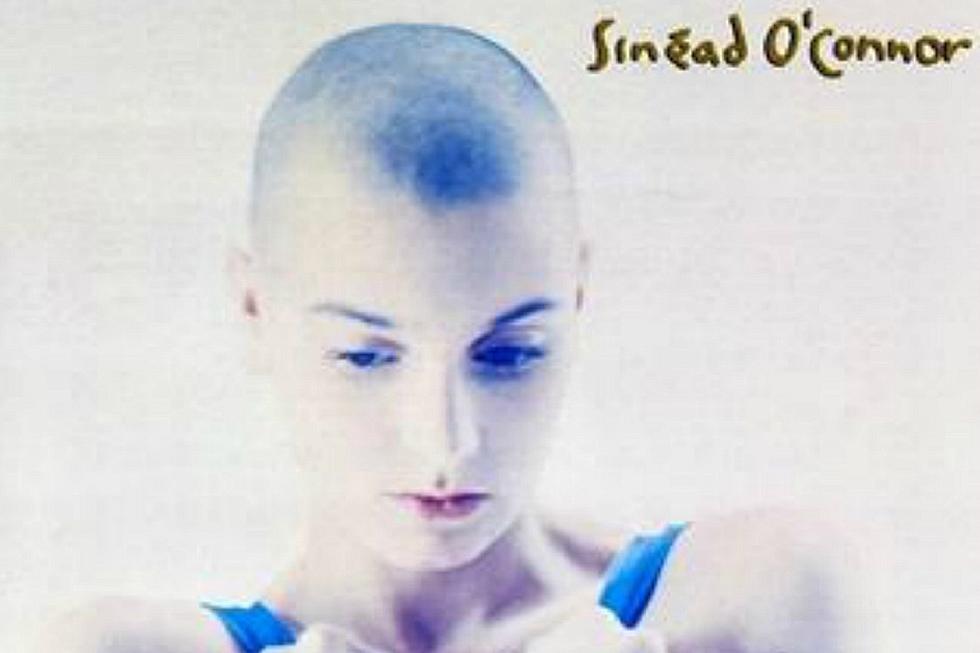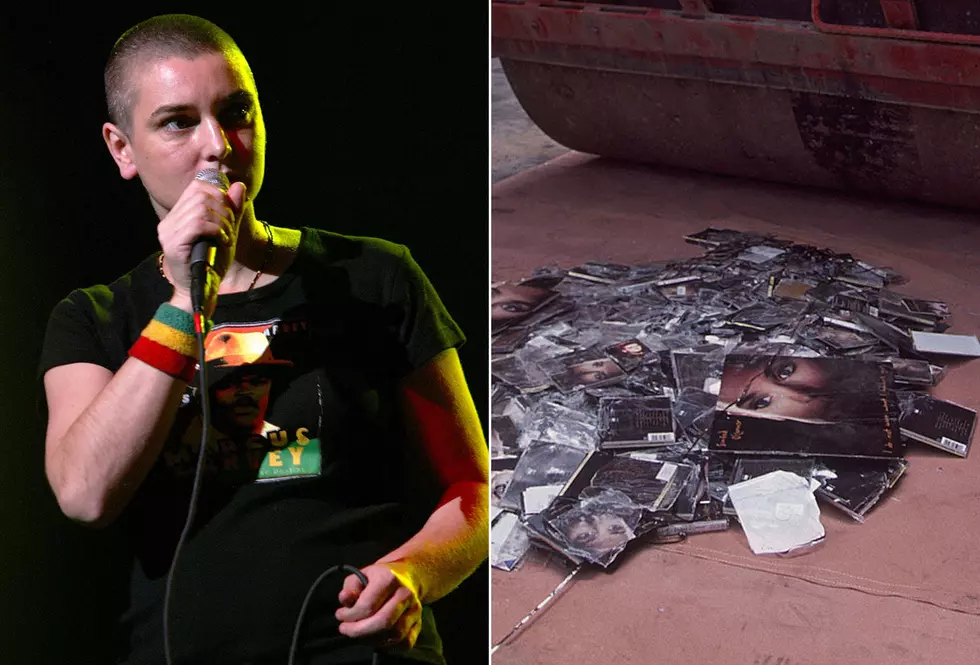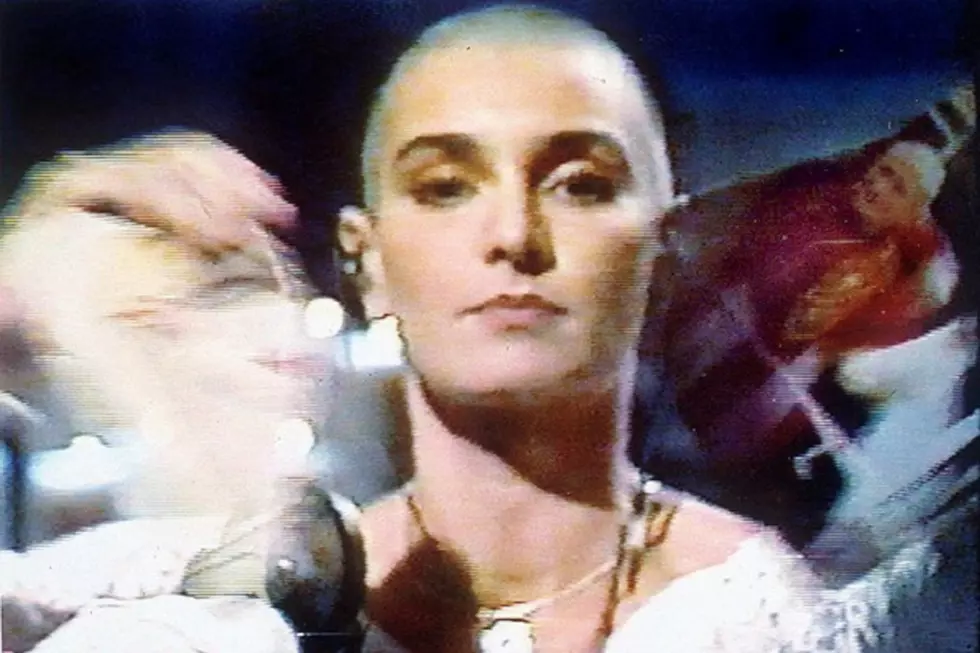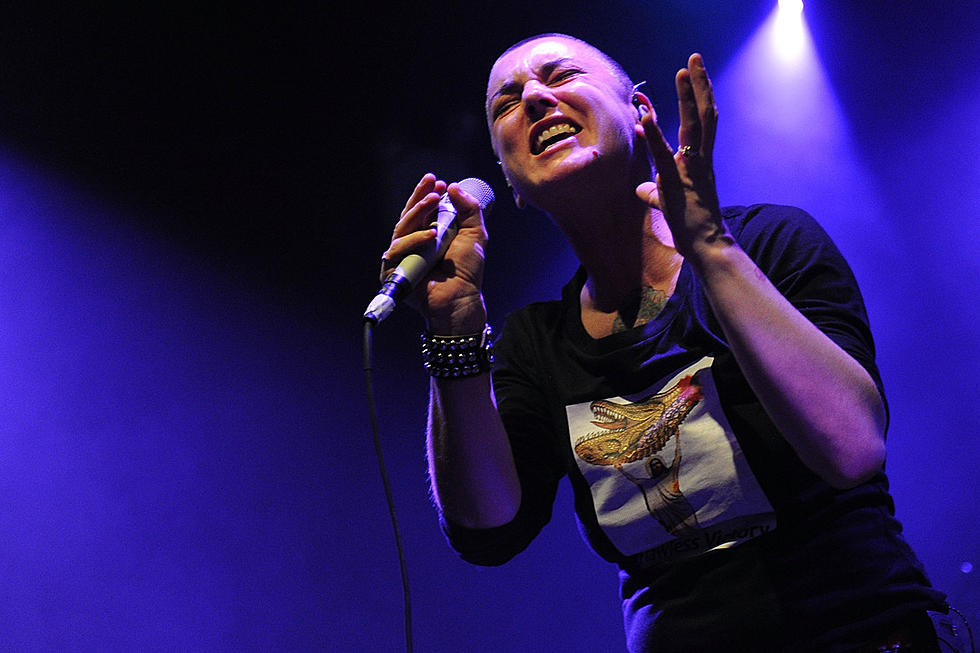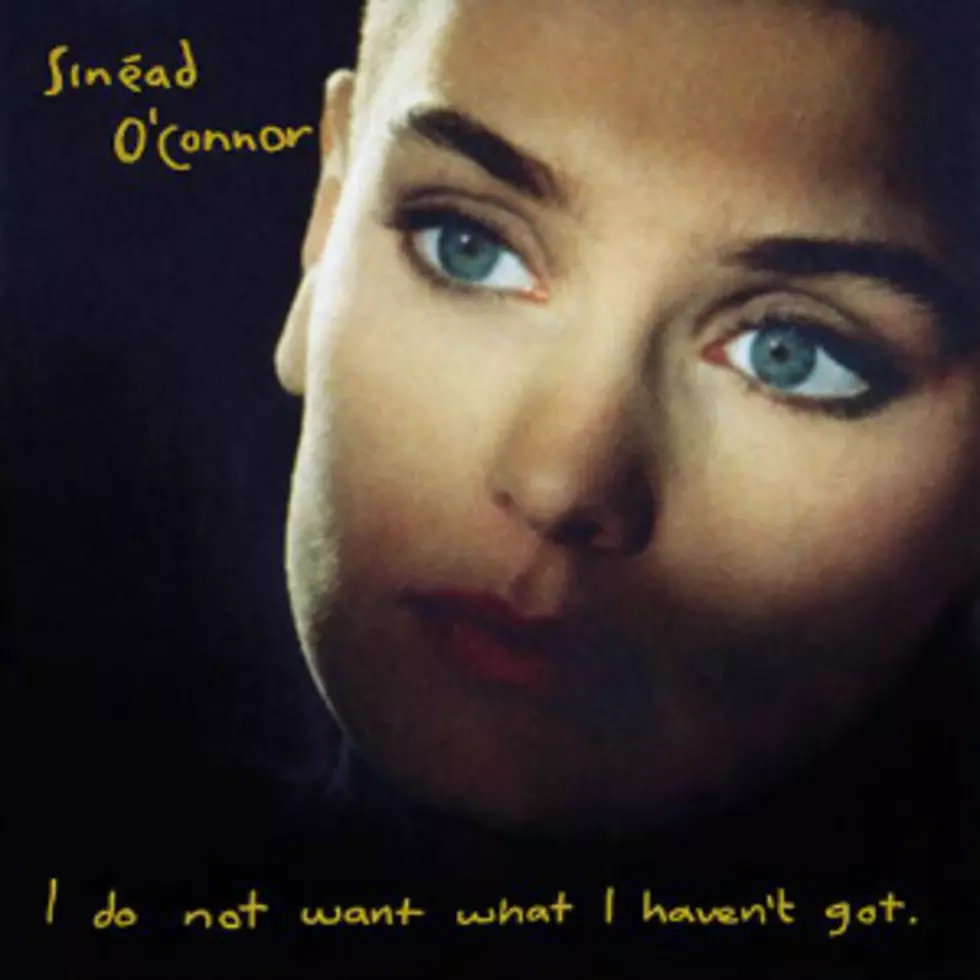
25 Years Ago: Sinead O’Connor Releases ‘I Do Not Want What I Haven’t Got’
"You're not supposed to be here at all now. It's all been a gorgeous mistake." --
"Jump in the River"
By 1987, the bloom was off of the post punk/new wave rose. Former alternative favorites like U2, the Cult and Love and Rockets released huge, mainstream albums that year. Former Paisley Underground favorites the Bangles had the Billboard number one single that year with "Walk Like an Egyptian." The underground that we knew was moving above ground quickly.
The mainstream was nothing to get excited about, especially for women who had their choice between school girl role models like Debbie Gibson and Tiffany, hypersexualized icons like Madonna and Samantha Fox and the safe pop of Jody Watley, Whitney Houston and Lisa Lisa.
So when Sinead O'Connor's debut album, The Lion and the Cobra, dropped that year, those of us who were looking for an alternative embraced her. Sure, cuts like "Mandinka" and "I Want Your (Hands on Me)" weren't exactly Bauhaus, but they weren't Starship's "Nothing's Gonna Stop Us Now," either.
Besides, rumor had it that the beautiful young Irish singer shaved her head specifically not to be a Madonna or Samantha Fox. No doubt she could have traded on her looks, but O'Connor wanted her voice to come first. That was a punk rock move even if her music wasn't, and it earned her even more credibility.
Let's jump ahead now to 1990. Mainstream music isn't much better. Tiffany and Debbie Gibson are gone, but Wilson Phillips and Roxette have taken their places. The next wave of alternative music is clearly underway: Jane's Addiction's Ritual de lo Habitual and the Red Hot Chili Peppers' Mother's Milk both have a lot of buzz around them, as do albums from Faith No More and Primus. Up in Seattle, things are about to explode.
Honestly, I didn't expect much from O'Connor's sophomore effort, released in March 1990. The title seemed unwieldy -- I Do Not Want What I Haven't Got -- and the cover art was too somber. The album opened with the Serenity Prayer, for crying out loud. Heavy stuff.
But there was definitely a heavy vibe about the era, the Chilis not withstanding. Faith No More were singing about wanting it all and not having it, and here came O'Connor with the exact opposite point of view. Perry Farrell's lyrics were never more heartfelt and candid than on Ritual cuts like "Then She Did." A somber album was not out of place for alternative fans at that time.
I bought it. I spun it. I was hooked.
I Do Not Want... wasn't so much a collection of ten songs as an open wound spinning at 33 1/3. That was its magic. The album felt like a Malkovich-like portal into O'Connor's head, even when she was singing someone else's song. "I Am Stretched On Your Grave" dates to the 17th century, but the hurt and obsession felt like they were all hers.
There was one other cover on the album, an obscure 1985 cut from a band named the Family, which was one of Prince's many side projects. Released as a single the same month that the album was released, "Nothing Compares 2 U," became nothing short of a phenomenon.
Within a month, the single went platinum, eventually becoming the third best selling track of 1987 in the United States. It was an amazing feat for a performer who just a couple of years prior was considered a college radio act.
Much like the punk and post-punk music that came out of the U.K. in the '70s and '80s, the album functioned as a bit of an alternative newspaper, too. I had no idea what "offshore banking" meant prior to the Members' "Offshore Banking Business," nor did I know what Reuters was prior to Wire's single of the same name. Prior to the internet, we took our peeks into other cultures wherever we could find them. "Black Boys on Mopeds" served not only as a window into England as something other than a "mythical land," but made me consider my own country's domestic and foreign policies. Twenty-five years later, the song remains as true as ever, particularly given the current news cycle.
Politics aside, the album resonated so well (and likely still does) with young people because at its core lies O'Connor's relationship with her abusive mother, who died a few years prior to the album. In an interview with Paul Du Noyer the singer revealed:
So a lot of the songs on this record were really about her. Even the f--ng title I got from having a dream about her, and in this dream she said to me, “I do not want what I haven’t got.” In my mind, even 'Nothing Compares 2 U' was me thinking about her….'Feel So Different' was a song about my mother. 'I Am Stretched On Your Grave' speaks for itself really [she laughs bleakly]… 'You Cause As Much Sorrow' was about my mother…
The title cut closes out the album, an a cappella song poem as sparse and moving as anything ever recorded. Here is a perfect example of sound following sense -- nothing but that beautiful voice, the only thing that was decisively hers:
The album went on to sell 7 million copies, rendering O'Connor one of the biggest pop stars of the year, but she wasn't a pop star. Again, speaking to Du Noyer the singer said:
I was a square peg in a round hole. I saw myself as a protest singer, really. I was representing child abuse survivors. That’s how I saw myself. So I didn’t fit in to the pop star thing.... I didn’t know who I was. I couldn’t find the “I” in it all.
"Pop star" and "folk singer" rarely occupy the same space, as O'Connor quickly discovered. You're not supposed to be here at all. It's all been a gorgeous mistake. She was living the lyrics of her own music.
The dominoes fell quickly. She won the first Grammy for Best Alternative Music Album but boycotted the show. After refusing to play a U.S. date if the national anthem played beforehand, even Frank Sinatra threatened her.
Perhaps no superstar career has imploded so publicly and completely as O'Connor's did on October 3, 1992 -- the night of the infamous Saturday Night Live appearance. Keep in mind that she identified herself as "a protest singer representing child abuse survivors," so during the show's dress rehearsal, O'Connor held up a photo of a child after performing Bob Marley's "War." Live it was a different story:
SNL survived the "Pope photo" controversy just fine, but the impact on O'Connor's career was immediate. She was essentially booed off the stage of a Bob Dylan tribute concert, vilified, labeled erratic, angry, crazy and anything else you can think of. Within a year of I Do Not Want's release, erratic, angry and crazy when coupled with deadly serious songs propelled Nirvana and the rest of the grunge movement into the same spotlight in which O'Connor reluctantly found herself. Sadly, some of those guys coped even worse with the collision of alternative principles and mainstream success . In retrospect the real miracle is that Sinead O'Connor survived the whirlwind.
More From Diffuser.fm

